Discover This Week in Business
This Week in Business

This Week in Business
Author: The Wharton School
Subscribed: 2,153Played: 75,823Subscribe
Share
© 844532d0-25f8-11f0-975b-2d032272e5a5
Description
Bringing together top leaders, innovators and renowned faculty from the Wharton School of the University of Pennsylvania discussing topics that matter to consumers and the business world.
Hosted on Acast. See acast.com/privacy for more information.
1397 Episodes
Reverse
Matthew Bidwell, Wharton Professor of Management, reflects on the cooling labor market, the influence of artificial intelligence, hybrid work dynamics, and what workers and graduates should expect as the economy heads toward 2026. Hosted on Acast. See acast.com/privacy for more information.
Ethan Mollick, Co- Director of Wharton Generative AI Labs, examines how artificial intelligence continues to advance without slowing, highlighting its growing business adoption, potential labor market effects, and the importance of guardrails as organizations prepare for 2026. Hosted on Acast. See acast.com/privacy for more information.
John Zhang, Wharton Marketing Professor, discusses his recent analysis of free versus fair trade, explaining the economic assumptions, political incentives, and distributional consequences of tariffs in today’s global trading system. Hosted on Acast. See acast.com/privacy for more information.
Lynn Wu, Wharton Associate Professor of Operations, Information and Decisions, explains why today’s AI investment frenzy, while exhibiting bubble-like characteristics, represents a vital phase of technological evolution—driving infrastructure development, enabling future economic spillovers, and laying the groundwork for transformative advancements across industries. Hosted on Acast. See acast.com/privacy for more information.
Itamar Drechsler, Wharton School Professor of Finance and Co-Director of the Rodney L. White Center for Financial Research, explains the economic forces behind high credit card interest rates, highlighting the roles of defaults, operating costs, marketing expenditures, and market power in shaping what consumers ultimately pay. Hosted on Acast. See acast.com/privacy for more information.
Serguei Netessine, Professor of Operations, Information and Decisions and Senior Vice Dean for Innovation and Global Initiatives at the Wharton School, discusses new research analyzing how Amazon fulfillment centers affect county-level employment, median household income, and poverty rates. Hosted on Acast. See acast.com/privacy for more information.
Stefano Puntoni, Wharton Marketing Professor and co-director of the Wharton Human AI Research Project, discusses emerging research on AI companionship, its effects on loneliness and mental health, and the complex safety, ethical, and legal considerations shaping this rapidly evolving space. Hosted on Acast. See acast.com/privacy for more information.
Jeremy Siegel, Professor Emeritus of Finance at the Wharton School and Senior Economist at WisdomTree, offers his perspective on Fed decision-making amid data gaps, evolving consumer trends, AI-driven market competition, and the broader economic implications of shifting U.S.–China relations. Hosted on Acast. See acast.com/privacy for more information.
Mark Pauly, Professor Emeritus of Healthcare Management at the Wharton School, examines Senator Bill Cassidy’s new health savings account–based proposal, evaluates its relationship to existing ACA tax credits, and offers broader insights into the persistent economic and political challenges of U.S. health care reform. Hosted on Acast. See acast.com/privacy for more information.
Mina Fader, Managing Director of the Baker Retailing Center at the Wharton School, offers insights on how inflation, inventory strategy, consumer spending habits, and the renewed importance of in-store experiences are shaping the outlook for holiday retail performance. Hosted on Acast. See acast.com/privacy for more information.
Kevin Werbach, Wharton Professor of Legal Studies and Business Ethics, explores the goals, limits, and broader national context of California’s newly enacted AI child-protection bill and what it signals for future regulation and industry responsibility. Hosted on Acast. See acast.com/privacy for more information.
Ezekiel Hernandez, Wharton Management Professor, explains new research co-authored with Britta Glennon revealing how limits in the H-1B visa program push companies toward targeted M&A activity as a strategic response to skilled labor shortages. Hosted on Acast. See acast.com/privacy for more information.
Itay Goldstein, Wharton Professor of Economics and Finance, analyzes Coinbase’s $375 million acquisition of blockchain capital-raising platform Echo, exploring how reduced regulatory uncertainty, renewed interest in Initial Coin Offerings, and innovations like stablecoins are influencing the next stage of crypto market evolution. Hosted on Acast. See acast.com/privacy for more information.
Kent Smetters, Wharton Professor of Business Economics and Public Policy and Faculty Director of the Penn Wharton Budget Model, explains the economic realities behind the United States’ $38 trillion national debt, discussing options for increasing revenue, reforming entitlements, and fostering bipartisan approaches to secure the nation’s fiscal future. Hosted on Acast. See acast.com/privacy for more information.
Stefano Puntoni, Wharton marketing professor and co-director of Wharton Human AI Research, discusses findings from a multi-year study on how companies are implementing generative AI, examining its impact on entry-level jobs, return on investment, and the growing intersection between human expertise and emerging technology. Hosted on Acast. See acast.com/privacy for more information.
Jeremy Siegel, Emeritus Professor of Finance at the Wharton School and Senior Economist at WisdomTree, analyzes the Federal Reserve’s latest rate decisions, the evolving U.S. labor market amid AI-driven changes, and the global economic implications of renewed U.S.-China trade negotiations. Hosted on Acast. See acast.com/privacy for more information.
Rob DiGisi, Lecturer in Legal Studies and Business Ethics at the Wharton School, joins the show to discuss how recent gambling indictments involving NBA figures reveal the complex intersection of legality, ethics, and integrity in professional sports—and why issues like prop bets, player vulnerability, and federal cooperation continue to shape the future of regulated sports wagering. Hosted on Acast. See acast.com/privacy for more information.
Ben Keys, Wharton Real Estate Professor, discusses the renewed interest in adjustable-rate mortgages, outlining how these products can offer short-term savings for homebuyers facing steep housing costs and elevated interest rates, while also exploring the long-term risks and strategic considerations involved. Hosted on Acast. See acast.com/privacy for more information.
Gad Allon, Wharton Professor of Operations, Information, and Decisions, explores the current state of global supply chains—from the lingering effects of the pandemic and industrial disruptions to the trade-offs between cost efficiency and resilience—and explains how emerging technologies like AI and digital twins are reshaping how companies prepare for and manage risk in an increasingly volatile world. Hosted on Acast. See acast.com/privacy for more information.
Judd Kessler, Wharton Professor of Business Economics and Public Policy, discusses his research examining how the framing of organ donor registration questions—such as opt-in versus yes/no formats—impacts real-world donor sign-ups, revealing surprising insights about what truly drives people to say “yes” to saving lives. Hosted on Acast. See acast.com/privacy for more information.



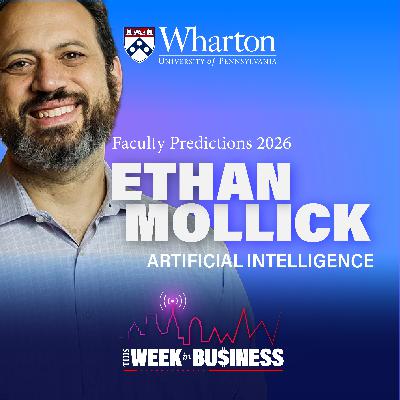

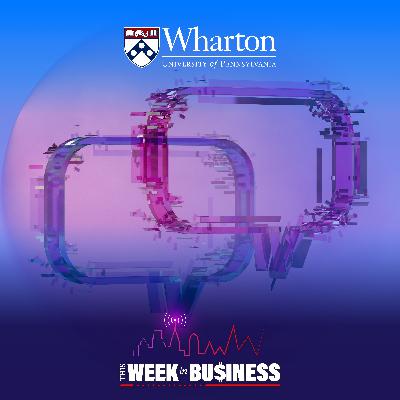

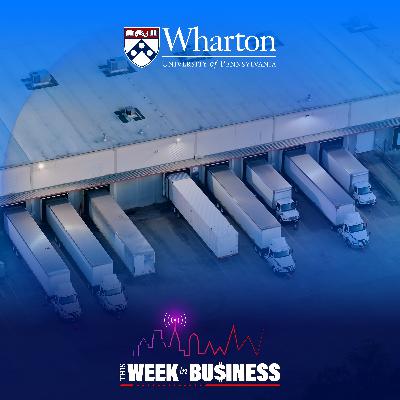
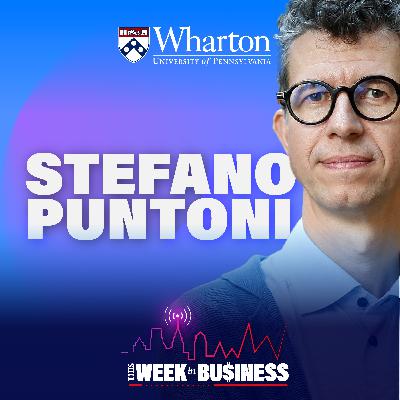
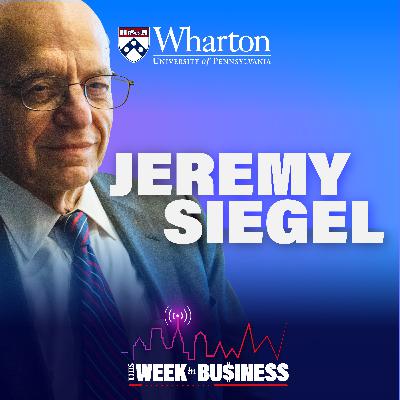
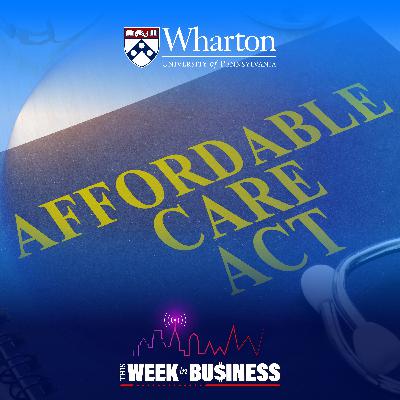

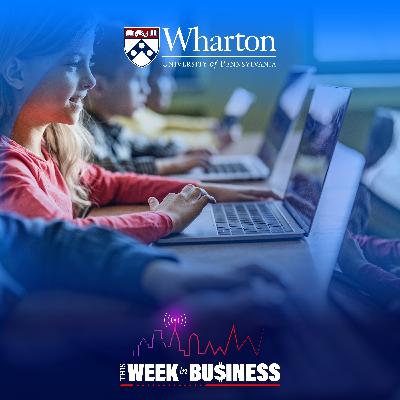

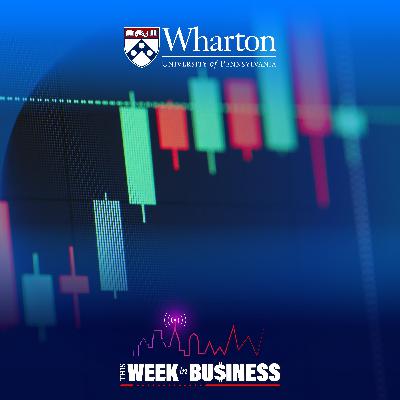
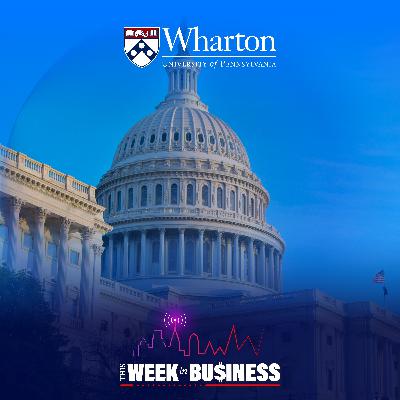







Feels like an advert for Omaha Steaks. Poor from the podcast
Super biased guest. Hard to take any of his emotional viewpoints as having any substance behind them. I hope future guests are better vetted and come with facts and data to share.